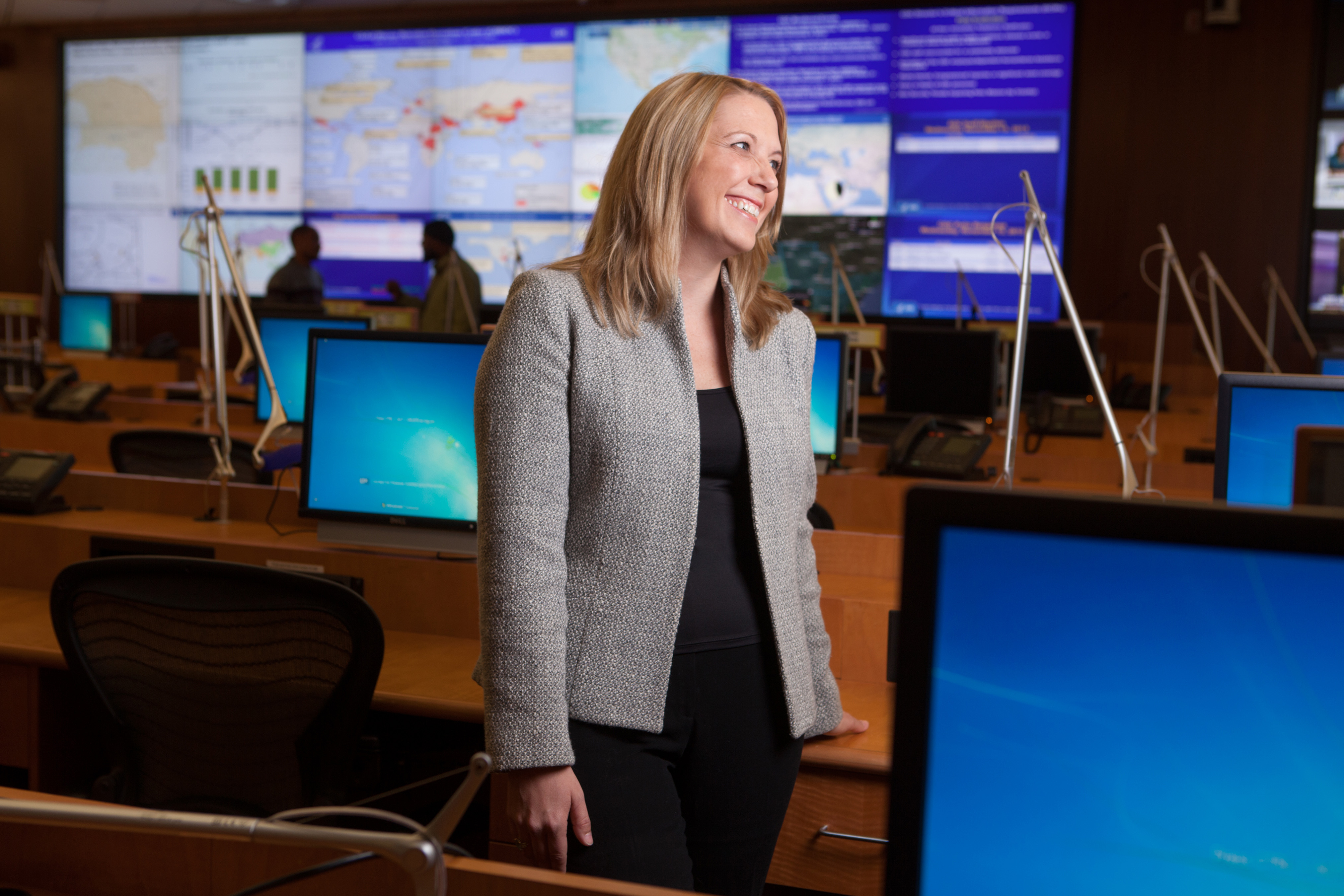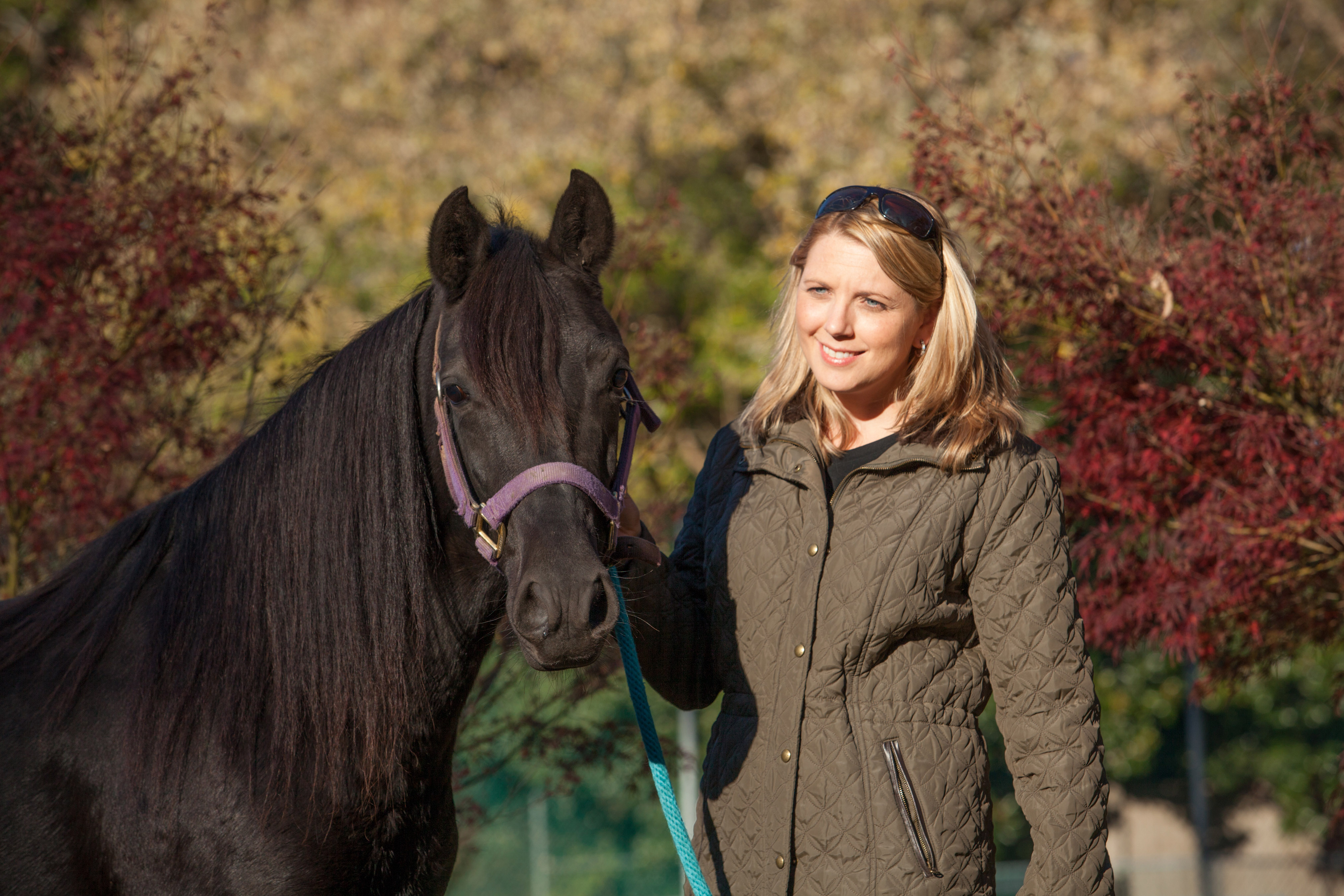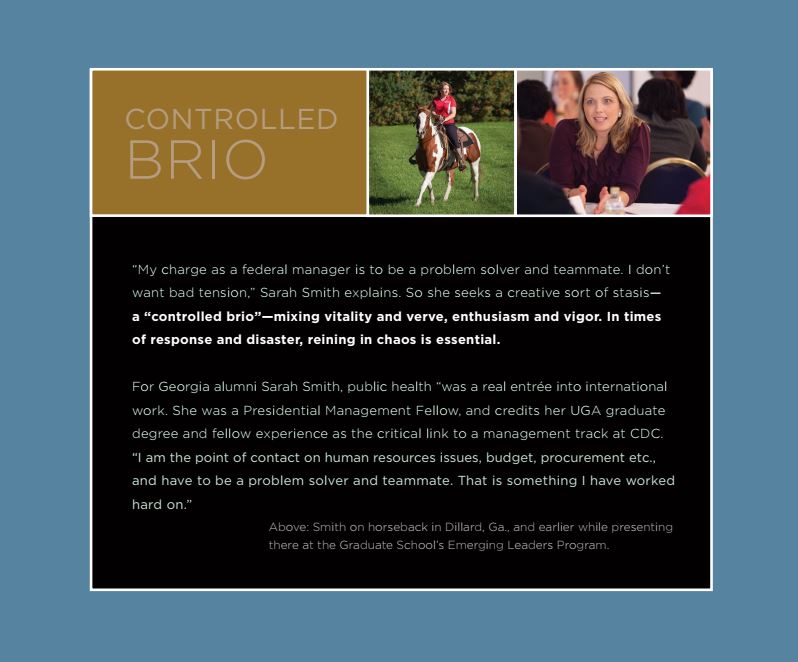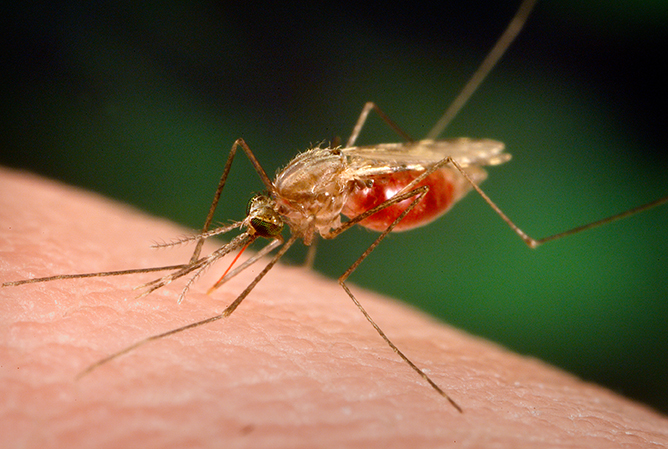Controlled Brio: The Vigorous Enthusiasms of Sarah Smith

By: Cynthia Adams | Photos by: Nancy Evelyn
For a young urban professional. Sarah Smith has enviable street cred. She did something enviable when only 24. She landed a job at the Centers for Disease Control and Prevention straight out of school in 2001. Smith left Athens with a Master of Public Administration in one hand and a job contract in another.
And, not just any job. As a part of her Presidential Management fellowship experience, Smith worked for the chief operating officer and had responsibilities bearing repercussions for many. When she reported for work on the CDC campus in Atlanta, she joined a highly secure organization whose profile is quiet but whose name is cited as the top rated among all governmental agencies.

Sarah Smith, CDC. In CDC control center
Communicating the Message
In its infancy, the post-war era CDC was responsible for one thing alone: mosquito control and eradicating the malaria that ravaged the South. Today, the agency is also responsible for a list of public health threats, including those resulting from natural disasters, chemical and radiological materials, infectious disease, and biological threats. The CDC’s modern reach encompasses many other worrying issues and challenges.
The Centers for Disease Control and Prevention is known best to the world simply by its acronym, CDC. Internally, it is known as “the agency.” Today, Smith leads the Office of Public Health Preparedness and Response’s Management Services Office.
To the rest of us, this means Smith directs the office’s daily management and operations affecting more than 700 staff. (Her office, OPHPR, has an annual budget alone of $1.3 billion. And hold your horses, as there are more acronyms to come. And even horses.)
“The Gallup poll just did a recent poll of the American public,” Smith says with visible pride. “The CDC was the most trusted public agency. We have public trust—and we have to be trusted,” Smith says. She sips iced tea and talks about her work life, which takes her from the CDC’s Atlanta campus to far flung destinations such as Kenya and Tanzania. With a mandate for readiness around the clock, to known hot spots and disaster points, the CDC goes where many would fear most.
“A lot of what I do is budget planning and streamlining operations to ensure we have appropriate resources available. In my previous role at the agency, we supported the Epidemic Intelligence Service. Often, the Epidemic Intelligence Service, EIS, may be first on the ground, say, during a salmonella outbreak. The operations side is so critical. We have to keep things specific to the needs—the temperatures that things have to be for scientists doing lab work. Support partners in nonprofit organizations. Partnership building—how do we make good investments and leverage that. And make sure we align resources for maximum health impact.
Danger and tension are everyday possibilities in the 24/7 work of the CDC.
Although equanimity is a requirement of CDC leadership, its complementary opposite is something that Smith values. The qualities of passion and staying positive speak volumes to her.
“It is an energy or a passion, an inner drive—a positive energy,” she answers decisively. “I got that insight from recruiting,” she adds, referencing one of her most rewarding work roles. “Skills can be learned; but that attitude and diligence is something that people report on appreciating–mastering the soft skills will (potentially) even get you further than subject matter expertise.
She quickly admits that as she travels the globe on behalf of the CDC, she finds herself mindful of articulating ideas. Smith buys books in airports and bookstores that offer insights. In fact, the power of words and communicating ideas are so important that Smith encourages staffers to explore business writing books. She is reading Lean In, and especially liked Mireille Guiliano’s Women, Work, and the Art of Savoir Faire.
“Face it,” writes Guiliano, who was CEO of a large French corporation, “in business, communication skills are the key to a successful career, more than intelligence, knowledge, or experience.”
Smith says she found in her first year at the CDC that the distillation and presentation of ideas was going to be the most useful tool in her toolbox.

Sarah Smith, CDC with horse in Atlanta.
Mastering the Art of Self Expression
Smith is more mature than her years, projecting calm capability. With her pale eyes and hair and modulated voice, she has the reassuringly professional polish of a television newscaster. The newsroom was, in fact, first home to her father, Stephen A. Smith, who recently retired from the Grady College after a second career as a popular UGA classroom presence. She has grown up understanding the value of communicating calmly in crisis.
She grew up in Atlanta when her father still worked for ABC News and then ran the newsroom at NBC affiliate station WXIA Channel 11, and her mother worked in special education. It was the sort of background that left Smith with an awareness that was compassionate and objective at once.
Her father tired of chasing hurricanes. “My dad accepted a professorship at his alma mater Indiana University, but my mom and I stayed in Atlanta while he commuted.”
In addition to her consuming vocation, Smith has a lot of avocations which help her keep stress in check. She is a trained and certified mediator, a distance runner, rescues dogs, and keeps her horse on a friend’s property in Buckhead. Smith has been an equestrienne since she was five, and rides a Spanish gaited horse known as a Paso Fino, meaning, “fine step.”
Similar to the skillful riding style known as dressage, a French term for a competitive sport, riding a Paso Fino requires disciplined control and horse training. She keeps a pair of riding boots in the trunk of her car, and whenever possible, joins her horse for a workout.
“The Paso Fino is bred for endurance and its smooth gait which allows you to have a drink in your hand and you never spill a drop—‘controlled brio,’” Smith explains and smiles widely, her blue eyes intensifying as she relates the experience. With people, as with horses, there are natural, temperamental differences and cadences. By example, Smith discusses the inherent tensions between business and science.
“My charge as a federal manager is to be a problem solver and teammate. I don’t want bad tension,” she explains. So she seeks a creative sort of stasis—a “controlled brio–mixing vitality and verve, enthusiasm and vigor. In times of response and disaster, reining in chaos is essential.
While coming of age, Smith once thought of corporate law as her ultimate destination. Her high school friend’s parents were highly placed at the Centers for Disease Control and Prevention. Early on, she noticed their unusual work attire and was curious, interested in their work.
“They wore uniforms, because the United States Public Health Service is one of the uniformed services. Commissioned Corps Officers are on duty 24/7, and are deployable during events, as first responders. Their example lingered in her mind, even as Smith enrolled in business classes at Presbyterian College in Clinton, S.C.
Smith completed a double major in history and political science at Presbyterian College in 1999, with a minor in business. She liked business issues and was fascinated by Harvard Business case studies. For her, the next step had to synthesize all her favorite interests.
“What was the perfect mesh? Business and politics,” she decided. Smith weighed human resources as a career path, but says she felt a greater passion for government and how it runs and works, and the necessary business aspect. “Public health gave me a chance to marry all those interests. She opted to enter graduate studies after one of Smith’s sorority sisters, Anne Marie Goldsmith, enrolled at the University of Georgia. “My small school experience was great but it was also great to go back to big.
When Smith visited Georgia for an interview, she talked with Jerry Legge, assistant dean of the school of public and international affairs. It was a “small world” moment.
“I had gone to Tucker High School (in DeKalb County) with his two children. He talked to me about Georgia, the degree, and assistantship opportunities. Being from Atlanta it was appealing to come back.” Smith entered graduate school in 1999 as the first Dawg in the Smith family.
“I went straight from undergrad to grad school, and had very little real world experience. Some of my peers had gone to the working world first. So we learned from one another. It was a professional degree with many night classes, done to allow people who are full time to do that.”
Soon after she left UGA in 2001, her father followed her to Athens and began a second career as a popular lecturer at UGA. His daughter is rightly proud. “My dad, Steve, became a professor in the Grady School in 2003 and spent 10 years there. His students did a nightly televised newscast.”
Smith had found that public health “was a real entrée into international work.” She applied to become a Presidential Management Fellow, and credits this and the School of Public and International Affairs, known as SPIA, as being the springboard to the CDC.
“I did recruiting for the CDC and would engage SPIA’s Lisa Sperling to bring information on careers at CDC to undergraduate and graduate students. Lisa works for UGA’s SPIA as a marketing and outreach point of contact. Public health appeals to those who have a public interest/ social responsibility interest. You can have immediate direct impact, impact national policy, and gain international experience. It’s a good way to get there,” says Smith
“We are so fortunate to have Sarah as one of our alumni,” Sperling responds. “Throughout the past decade, Sarah has been an invaluable resource for the MPA program answering questions from students interested in pursuing careers with the federal government, especially the CDC. Additionally, she has been such a great support system to me personally as I assist students in applying to the prestigious Presidential Management Fellows program, the premier program for those entering the federal service, of which she is a graduate.”
Over the past decade, Smith has since recruited many times at the UGA Career Fairs held at the Classic Center, and has become a popular figure at the fall Graduate School Emerging Leader’s program. Last October, Smith returned to the Emerging Leaders program held in Dillard, Ga., to speak to graduate students about her career path and experiences.
For several years, Judy Milton, assistant to the dean of the Graduate School, has asked Smith to serve as a panelist. “Sarah is a tremendous asset for the students in the Emerging Leaders program,” says Milton. “We are very glad to have one of our graduates come back to interact with the participants– she sets a great example for them. Sarah gives the students practical advice and helps them to think about new ways to achieve their career goals.”
She serves as a powerful example, agrees Dean Maureen Grasso. The students see possibilities for someone with youthful drive, energy, and a graduate education. They also see a student interested in continually investing in Georgia’s intellectual talent pool.
But Smith says she always enjoys hearing how the CDC name piques students’ interest.
“I always say recruiting to a captive audience is very rewarding, because you hear how much excitement there is for the agency.”

A Typical Day at CDC
Since arriving at the CDC 12 years ago, Smith has also worked on agency policy issues as well as her ongoing responsibilities. She assisted with preparing internal leadership for the annual appropriations hearing held in Washington. Her boss at the time was the CDC’s chief operating officer.
“That was a neat experience,” she recalls.
For Smith, a typical work day involves intense amounts of face time with colleagues who may be in research, the civilian world, or the government.
“It is a lot of meetings. A lot of interaction with scientists and subject matter experts. We work with business offices around the CDC. We work with human resources to bring new people on to the agency. More times than not, I have done a lot of outreach, discussing what it is like to be a manager. Our work involves a pipeline, bringing people in. The end goal of her recruitment and outreach, Smith says, is a healthier public and a healthy workforce.
At the CDC, Smith says, they think of the public as one of their customers. They take service seriously, as representing the health of their own agency. And their customers, according to recent Gallup reports, are well satisfied.
The UGA Graduate School Emerging Leaders Program is an invited leadership workshop sponsored by the Graduate School. The program is held off campus, which helps students learn from experts and fellow graduate students. Students attend sessions about professional development and leadership skills necessary for entering the workplace characterized by a diversity of people, career opportunities and ever-increasing responsibilities. Dean Maureen Grasso attended a similar program while a graduate student herself. “We have only a few days over fall break to expose students to a process that could illuminate the future for them. Self awareness is a process. We are able to give them a set of tools, contacts and relationships that they can deploy from this time forward,” says Grasso.

2005
James Gathany, Frank Collins
This photograph depicts a Anopheles funestus mosquito partaking in a blood meal from its human host. Note the blood passing through the proboscis, which has penetrated the skin, and entered a miniscule cutaneous blood vessel.
The Anopheles funestus mosquito, which along with Anopheles gambiae, is one of the two most important malaria vectors in Africa, where more than 80% of the world’s malarial disease and deaths occurs. Humans infected with malaria parasites can develop a wide range of symptoms. These vary from asymptomatic infections, i.e., no apparent illness, to the classic symptoms of malaria including fever, chills, sweating, headaches, muscle pains, to severe complications such as cerebral malaria, anemia, and kidney failure, and even death. The severity of the symptoms depends on several factors, including the species of infecting parasite, and the infected human’s acquired immunity and genetic background.
Preventing Malaria
According to the CDC’s website, malaria cases in the U.S. have hit the highest numbers in 40 years. As a public health concern, the steep climb in reported cases caused the center to offer suggestions in the event you might be at risk.
“Increasing numbers of malaria cases reported in the U.S. serve as a reminder to travelers to countries with malaria: think ahead and take steps to protect yourself from this potentially fatal, but preventable disease,” reports the CDC.
“CDC’s latest malaria surveillance summary report shows that approximately 2,000 cases of malaria were diagnosed and treated in the United States in 2011— almost all were acquired overseas in regions with malaria transmission. Five of the malaria victims died.
“Every year, millions of U.S. residents travel to countries where malaria is transmitted. Most travelers who contract malaria either did not take an antimalarial drug to prevent the illness or did not take the appropriate drug or dose,” the site adds.
Sub-Saharan Africa was the most common source of the disease, they report. Malaria victims in the U.S. had commonly contracted malaria while there. “Although India is often perceived as a place with low risk of malaria for travelers, for the first time, it is the individual country from which the most cases were imported into the United States. However, all travelers to countries where malaria is present may be at risk for infection.”
The CDC offers these five preemptive, cautionary measures to protect yourself if visiting known malaria hot spots:
- Visit your doctor four to six weeks before you travel.
- Buy your malaria pills before your trip.
- Take your malaria pills exactly as prescribed.
- Avoid mosquito bites by sleeping under an insecticide- treated bed net, wearing long sleeves and long pants, and using repellent.
- If you become sick with malaria symptoms such as fever and chills during or after your travel, make sure it is not malaria by seeing a doctor right away.
CDC’s Web pages have information for travelers about malaria prevention measures and detailed information on countries of concern.
Do-It-Yourself Bug Repellents
Your diet may have something to do with your popularity with the mosquitoes. To reduce your attractiveness, you may want to forgo bananas during mosquito season. According to alternative health nutritionist Janet Starr Hull, “there’s something about how your body processes the banana oil that attracts these female sugar-loving insects.” She also recommends supplementing with one vitamin B-1 tablet a day from April through October, and then adding 100 mg of B-1 to a B-100 Complex daily during the mosquito season to make you less attractive to mosquitoes.
Regularly consuming garlic or garlic capsules may also help protect against both mosquito and tick bites. Bear in mind, the best way to avoid ticks is to make sure you tuck your pants into your socks and wear closed shoes and a hat—especially if venturing out into wooded areas. You can also make your own mosquito repellent using any of the following:
- Cinnamon leaf oil (one study found it was more effective at killing mosquitoes than DEET).
- Clear liquid vanilla extract mixed with olive oil.
- Catnip oil (according to one study, this oil is 10 times more effective than DEET.
- Wash with citronella soap, and then put some 100 percent pure citronella essential oil on your skin. Java Citronella is considered the highest quality citronella on the market.








